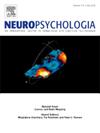The influence of tDCS on the speed-accuracy tradeoff and metacognitive decision making
IF 2
3区 心理学
Q3 BEHAVIORAL SCIENCES
引用次数: 0
Abstract
A fundamental tradeoff exists between speed and accuracy when performing a decision (speed-accuracy tradeoff, SAT). Metacognition allows for the adjustment, monitoring, and evaluation of one's own decisions and strategies. While these aspects of cognition are central to human behavioural performance, their respective causal neural underpinnings are not well understood. Here, we used transcranial direct current stimulation (tDCS) to investigate the causal roles of the prefrontal cortex (PFC), superior medial frontal cortex (SMFC), and posterior parietal cortex (PPC) in the SAT and metacognition. Subjects received active or sham tDCS before completing a perceptual task with explicit SAT cues and reported confidence in their decisions. We fit the linear ballistic accumulator model to behavioural data to extract latent decision variables and used confidence judgments to compute two common indices of metacognition: meta-d’ and m-ratio. Stimulation influenced performance on the perceptual task but there was no meaningful evidence for an effect on metacognition. Specifically, PFC stimulation reduced subjects' response caution, especially when accuracy was emphasised; SMFC stimulation decreased response caution and increased the discriminability between choices; and PPC stimulation increased both response caution and discriminability. These results show that the impact of tDCS on the SAT critically depends on the frontoparietal region stimulated. In addition, there was little to no evidence of any effect of tDCS on metacognition, hinting at potential differences in the neural circuitry supporting aspects of object-level computation and meta-level processing. In sum, our findings provide further evidence that tDCS can alter decision making and strategic processes in the human brain.
tDCS对速度-准确性权衡和元认知决策的影响。
在执行决策时,速度和准确性之间存在一个基本的权衡(速度-准确性权衡,SAT)。元认知允许对自己的决策和策略进行调整、监控和评估。虽然认知的这些方面是人类行为表现的核心,但它们各自的因果神经基础尚未得到很好的理解。本研究采用经颅直流电刺激(tDCS)研究前额叶皮质(PFC)、上内侧额叶皮质(SMFC)和后顶叶皮质(PPC)在SAT和元认知中的因果作用。受试者在完成带有明确SAT线索的知觉任务之前接受了激活或假tDCS,并报告了他们对决策的信心。我们将线性弹道累加器模型拟合到行为数据中以提取潜在决策变量,并使用置信度判断计算元认知的两个常用指标:meta-d'和m-ratio。刺激对知觉任务的表现有影响,但对元认知的影响没有明显证据。具体来说,PFC刺激降低了受试者的反应谨慎性,尤其是在强调准确性的情况下;SMFC刺激降低了反应谨慎性,增加了选择之间的区别性;PPC刺激增加了反应的谨慎性和可辨别性。这些结果表明,tDCS对SAT的影响主要取决于刺激的额顶叶区域。此外,几乎没有证据表明tDCS对元认知有任何影响,这暗示了支持对象级计算和元级处理方面的神经回路的潜在差异。总之,我们的发现提供了进一步的证据,证明tDCS可以改变人类大脑中的决策和战略过程。
本文章由计算机程序翻译,如有差异,请以英文原文为准。
求助全文
约1分钟内获得全文
求助全文
来源期刊

Neuropsychologia
医学-行为科学
CiteScore
5.10
自引率
3.80%
发文量
228
审稿时长
4 months
期刊介绍:
Neuropsychologia is an international interdisciplinary journal devoted to experimental and theoretical contributions that advance understanding of human cognition and behavior from a neuroscience perspective. The journal will consider for publication studies that link brain function with cognitive processes, including attention and awareness, action and motor control, executive functions and cognitive control, memory, language, and emotion and social cognition.
 求助内容:
求助内容: 应助结果提醒方式:
应助结果提醒方式:


